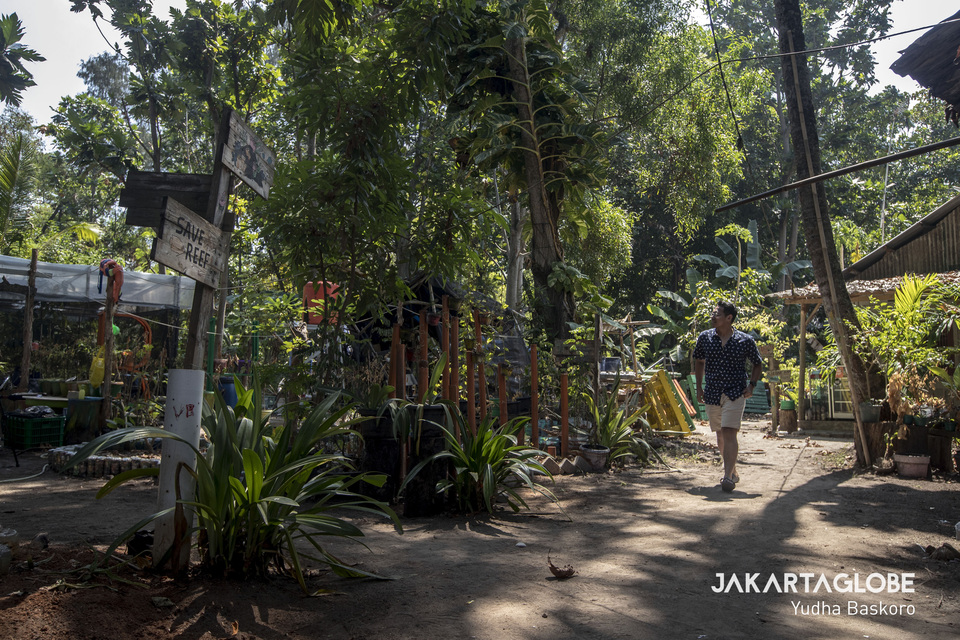To Invest With Impact, We Need to Invest in the Planet

The ongoing climate emergency still prevails, and climate change can no longer be dismissed as a remote threat.
In the recent United Nations (UN’s) Intergovernmental Panel on Climate Change (IPCC) report, the world’s leading climate scientists have made it clear that minor, reactive, or incremental changes are no longer sufficient to tackle the climate emergency.
In addition, Kaveh Zahedi, deputy executive secretary at the UN Economic and Social Commission for Asia and the Pacific (ESCAP), recently noted that the Asia Pacific is not on track to achieve any of its sustainability targets by 2030, citing the pandemic having an impact on progress in many areas.
Closer to home, Indonesia is not insulated from climate change. Rising sea levels from global warming have caused several parts of Indonesia to be highly susceptible to flooding – the capital city Jakarta is now the fastest sinking city in the world, sinking as fast as 10 centimeters per year.
Business not as usual: Investing in the planet
In light of this critical situation, this year’s Earth Day theme is “Invest in Our Planet,” which focuses on taking action and how individuals and organizations can make a difference.
Investment flows have already demonstrated an upward trajectory as we recover from the pandemic. OECD data shows that global investments in the first half of 2021 reached $870 billion, exceeding pre-pandemic levels by 43 percent and more than double those of the second half of 2020.
But how much of it is going into driving positive environmental and social impacts? Given that our future hinges on our efforts to reduce the effects of climate change, sustain our limited natural resources, and cope with the demands of a rapidly growing global population, is investing in the planet not the best option for the future?
A green future is a prosperous future, and this is why governments, industry, and individuals need to work together to achieve sustainable solutions for climate change and pollution.
As we reflect on this year’s Earth Day, companies of all sizes need to take action and embrace the benefits of a green economy and for business leaders to get on board with a sustainable future approach.
Invest in resource efficiency
One of the most crucial areas to address is tackling our energy and water efficiencies, which are core to the functioning of industries, municipalities, and buildings. In our increasingly industrialized and populated world, our water and energy usage skyrockets amidst our limited resources.
With fossil fuels being the source of most of the energy produced today, water processes are indirectly responsible for making large amounts of greenhouse gases, consequently contributing to climate change.
While Indonesia has taken significant steps toward resource efficiency as part of its broader sustainability efforts, one of the ways businesses can reduce their energy and water consumption is by implementing intelligent, resource-efficient technologies.
With energy, businesses can utilize innovative technology that regulates supply with demand. Notably, conventional cooling in buildings can be energy-intensive, given the need to move large amounts of water constantly.
Today, intelligent technology can intuitively adjust chilled water flow to meet changing cooling demands, ensuring efficient energy use without compromising performance.
Meanwhile, water efficiency can be achieved through improving infrastructure to reduce water loss during the distribution process. A World Bank study puts the global estimate of physical water losses at 32 billion cubic meters each year.
Today’s smart water management systems can now automatically adjust the water flow through the use of remote sensors. As this reduces excessive pressures in water pipes, the risk of water leakages is minimized, mitigating any unnecessary water losses.
Invest in a circular economy
Going beyond resource efficiency, companies also need to look at embedding circular principles throughout their business. Circularity focuses on designing waste out of the resource ecosystem and maximizing the value of resources by keeping them in use for as long as possible.
The global supply chain is still driven by the linear economy, where raw materials are processed, used, and then discarded as waste.
However, a linear approach is not sustainable in the long run. If we continue on this path, by 2050, global demand for resources will almost triple to 130 billion tons annually, which would overuse the Earth's capacity by over four-fold.
Meanwhile, a circular economy dramatically reduces our impact on the environment, with experts noting its potential of reducing 40 percent of global carbon emissions.
Indonesia is well underway with adopting a circular economy approach across the value chain. Notably, Coordinating Minister for Economic Affairs Airlangga Hartato affirmed the government’s commitment to transform Indonesia's economy into a circular one to conserve the nation’s natural resources better.
To implement circularity comprehensively, manufacturers must ensure it has a place at every step of the lifecycle, as they have a hand in everything from sourcing raw materials down to delivering the final product.
Solution providers are increasingly integrating circularity by promoting reuse, repair, remanufacturing, and recycling, notably through recycling and reuse initiatives and implementing takeback programs.
Water reuse is also a big part of circularity - by ensuring wastewater is effectively treated to a quality that makes it possible to feedback into our water cycles, it allows water to be saved in a time of scarcity.
Water treatment solutions now can empower companies to reuse their wastewater, reduce costs, and do their part to ensure that our natural water sources are not unnecessarily exploited.
Invest in greater water access
Last but not least, it is vital to invest in innovation and partnerships that can help people in poor areas and remote communities have better access to clean water.
Key sectors like agriculture, industry, and services, rely heavily on water, which means improved water access and management can contribute substantially to economic growth.
Investing in water access reaps tremendous economic benefits. Every dollar invested in water access and sanitation yields an average of $6.80 in returns. The World Bank found that failing to implement better water management policies could result in 2-10 percent regional GDP losses by 2050.
About 18 million Indonesians lack safe water in Indonesia and 20 million lack access to improved sanitation facilities. Indonesia’s National Rural Water Supply and Sanitation Project (Pamismas) has helped low-income rural and peri-urban populations in the country access improved water supply and sanitation facilities. Businesses should also play a role, given their industry expertise, resources, and network.
Janda Campos is the senior director of group sustainability at Danish multinational company Grundfos, the world's largest pump manufacturer.
Tags: Keywords:POPULAR READS
38 Ministries and Institutions Head to Nusantara, Led by Public Works and State Apparatus
Minister Azwar Anas revealed the 38 ministries and institutions moving to Indonesia's new capital, Nusantara, in East Kalimantan in July.Jokowi Encourages Tim Cook to Establish Apple Manufacturing Plant in Indonesia
Apple recently inaugurated a developer academy in Bali, building on the success of 3 existing academies in Batam, Surabaya, and Tangerang.BI Expected to Raise Interest Rates in Response to Weakening Rupiah
Bank Indonesia (BI) is anticipated to increase its benchmark interest rate by 25 basis points as rupiah slids to Rp 16,000.Pastor Gilbert Lumoindong Reported to the Police for Sermon on Islam and Zakat
Pastor Gilbert Lumoindong has been officially reported to the Jakarta Metro Police for alleged blasphemy.Indonesia Scraps Decision on Imported Goods Restrictions After Public Outcry
The government has reversed its decision to restrict imported goods carried by air passengers due to public outcry.Popular Tag
Most Popular






















